Colombia / 7 de octubre de 2018 / Autor: Juan Miguel Hernández Bonilla / Fuente: El Espectador
Israel
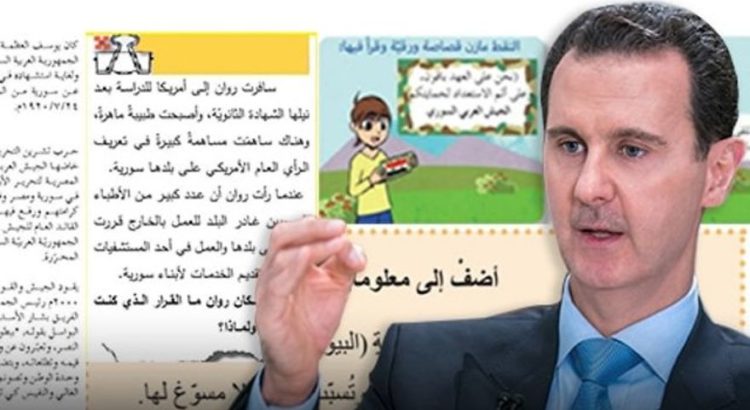
Siria: Sistema Educativo De Assad Consiste En Odiar A Israel E Ignorar El Holocausto
Redacción: Daniel Salami/Israel Noticias
Los libros de texto sirios acusan repetidamente a Israel de robar tierras con el fin de “fabricar la historia árabe-sirio”, y no hacen ninguna mención de Hezbolá o el Holocausto, según un nuevo estudio que proporciona información acerca de planes de estudios en Siria a raíz de la civil siria guerra.
El estudio fue escrito por el Dr. Eldad Pardo y Maya Yaakobi del Instituto para el Monitoreo de la Paz y la Tolerancia Cultural en la Educación Escolar (IMPACT-SE).
Desde 1998, la organización ha explorado y analizado libros de texto oficiales de todo el mundo para determinar su cumplimiento de los estándares educativos internacionales de paz y tolerancia.
En el informe, los autores analizan los libros de texto oficiales sirios para los grados 11 y 12 utilizados en el año académico 2017-2018, en áreas controladas por el régimen del presidente Bashar Assad.
Una de las acusaciones más graves contra Israel, que se repite varias veces en varios libros de texto, es que “fuerza la identidad sionista en la población del Golán“, haciendo cumplir la lengua hebrea sobre los residentes árabes sirios y la judaización.
Israel es constantemente referido como una “entidad sionista”, su territorio se llama “Palestina” u “Palestina ocupada” y toda el área geográfica se presenta como “la tierra natal de los árabes”.
Además, “los sionistas” están acusados de destruir el entorno natural del Golán y explotar el potencial económico y turístico de la región, así como de prevenir la prosperidad económica de sus residentes. Los sionistas son acusados además de planear reemplazar la educación siria con los “planes de la entidad sionista y terrorista“, para mantener a los ciudadanos árabes sirios “en la oscuridad”.
Del mismo modo, en casi todos los estudios realizados por investigadores que investigan la incitación a los libros de texto palestinos , se han encontrado materiales que infringen las promesas de la Autoridad Palestina de detener la incitación a Israel en las escuelas.

Los libros de texto presentan a Siria como pionera científica y tecnológica. Entre otras cosas, los editores de libros de texto enseñan sobre figuras rusas clave como Yuri Gagarin, el primer cosmonauta ruso. Irán, por otro lado, se menciona con cierto grado de hostilidad.
Según los editores del informe, esto puede indicar la intención de Siria de establecer relaciones a largo plazo con Rusia, mientras que Irán es considerado por el régimen como una fuente de asistencia temporal y local que cesa cuando ya no se necesita.
Sin mención de Hezbolá y el Holocausto
Los libros de texto sirios no mencionan el grupo terrorista Hezbolá, la guerra civil que ha estado sufriendo en el país durante los últimos siete años, ni los efectos de la guerra en la vida cotidiana de la población.
Siete años de intensas y sangrientas peleas han transformado por completo la realidad de Siria, y llevará muchos años rehabilitar al devastado país. Los enfrentamientos afectaron todos los aspectos de la vida en la región cuando cientos de miles de residentes sirios se convirtieron en refugiados. La economía, el sistema de transporte, el cuidado de la salud, el trabajo y la educación de Siria fueron destrozados por la lucha.
Como parte de los intentos del régimen de Assad de “hacer negocios como siempre”, el gobierno publicó información sobre el sistema educativo sirio a principios de julio. Según los datos publicados, 5.504 nuevos profesores se unieron a 11.329 docentes que fueron contratados en enero. Los maestros se integrarán en un gran número de escuelas en varios campos de estudio.
Además, la propaganda se utiliza con frecuencia para difundir falsedades sobre el gobierno a través del sistema educativo, con el objetivo de restaurar la confianza del pueblo sirio en el gobierno, para mostrar que la normalidad cotidiana está regresando lentamente, y para pintar una imagen engañosa de un gobierno. Pésimo funcionamiento del sistema educativo.
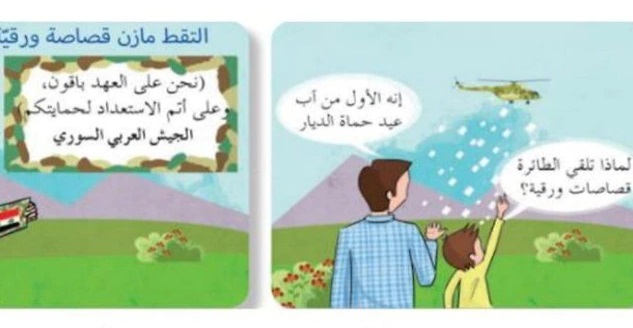
El mes pasado, el régimen sirio publicó casi a diario imágenes de refugiados que regresaban a sus hogares.
El nacionalismo sirio y árabe aparente en los libros de texto rechaza la hegemonía chiíta-iraní y lo ve como una amenaza. La cultura política jomeinista y el estilo de vida de Irán son rechazados por el plan de estudios sirio, con la excepción de un enemigo común: Israel y Occidente.
El CEO de IMPACT-SE, Marcus Sheff, comentó sobre el libro de texto: “Mientras los niños sirios son testigos de la guerra civil que los rodea, sus libros de texto no dan ninguna explicación para esta guerra. No hay esperanza de que Siria modere su tradicional hostilidad baathista hacia Israel, incluso después del final de esta terrible guerra civil “, dijo.
“La retórica permanece: Israel es un Estado terrorista y, por lo tanto, todos los medios son legítimos en la guerra, incluidos el terror y los ataques suicidas. De hecho, incluso cuando Siria está involucrada en la guerra, frente a los niños del país, la hostilidad hacia Israel permanece como principio central del plan de estudios sirio”.
El plan de estudios sirio asigna un lugar muy destacado para el nacionalismo, el patriotismo y la enseñanza de la lealtad al país y al régimen. Los libros de texto están plagados de mensajes nacionalistas, que retratan a Hafez al-Assad, el difunto padre del actual tirano sirio, como un héroe nacional cuyos pasos están siendo seguidos por su hijo Bashar con “coraje y valentía”.
La sección sobre el ejército, titulada “Sociedad”, describe al ejército como una parte integral de Siria. Uno de los autores del informe, el Dr. Eldad Pardo, afirma: “El presente plan de estudios sirio no se ocupa de la moral, la introspección o la educación para la paz, sino que tiene una visión del mundo radicalmente militarista y panárabe. La comunidad justifica la “resistencia” utilizando todos los “medios disponibles” para destruir al enemigo. Con respecto a la Segunda Guerra Mundial, el Holocausto no se menciona en los libros de texto sirios ya que los judíos son “mentirosos” en quienes no se puede confiar”.
Fuente: https://israelnoticias.com/siria/plan-estudios-assad-consiste-odiar-israel-ignorar-holocausto/
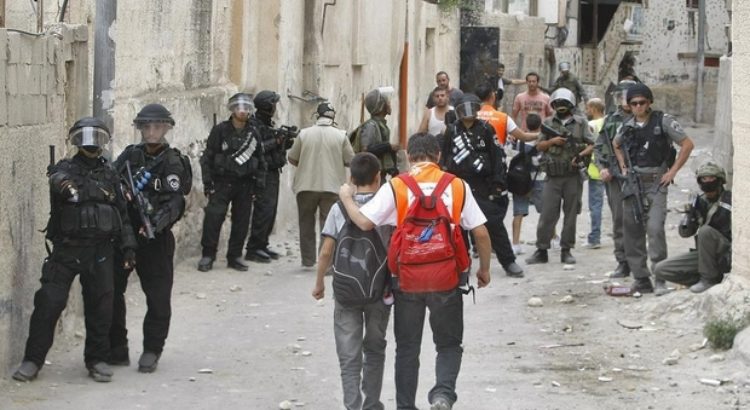
Tear gas and terror: A Palestinian education under occupation
Por: Yumna Patel/middleeasteye.net/02-05-2018
Officials say 95 West Bank schools were attacked in 2017 as intimidation, demolitions and occupation take high toll on Palestinian children
NABLUS, Occupied West Bank – The Israeli soldiers came as children were playing outside their village school south of Nablus. Within minutes tear gas had engulfed the playground, stones were thrown, and a 10-year-old boy was shot in the head with a rubber-coated steel bullet.
The violence on that morning of Sunday, 25 March was but the latest in a series of confrontations outside Burin village’s high school and Ahmad Faris, the 10-year-old taken to hospital for stitches, was the latest casualty.
The settlers try to break the school windows and attack teachers and students with rocks. Sometimes they shoot live bullets
– Ghassan Najjar, Burin activist
According to locals, the school is attacked up to three times a week by residents of the nearby illegal Yitzhar settlement, and Israeli soldiers from the nearby watchtower.
«More than 10 students refused to go to school after Ahmad’s injury, and another one wet himself at school,» Ghassan Najjar, a local activist told Middle East Eye.
«When you are studying and your school is surrounded by Israeli soldiers, how can you possibly focus in class?»
And the attacks fit a national pattern of increasing intimidation and violence against schools, children and teachers.
The Palestinian education ministry’s annual report found 80,279 Palestinian children and 4,929 teachers and staff were «attacked» by Israeli settlers or soldiers.
Over the course of the year, nine students were killed under various circumstances, 600 were injured, and more than 300 were arrested, in 352 attacks by Israelis on 95 schools.
 An Israeli soldier points his weapons at a youth during clashes in Burqin in February 2018 (AFP)
An Israeli soldier points his weapons at a youth during clashes in Burqin in February 2018 (AFP)Schools on the frontline
Nestled in the rolling hills of the northern West Bank, Burin is home to about 3,000 Palestinians, and is surrounded on all sides by two illegal settlements, an illegal outpost, and a military base.
The school sits at the entrance of the village, and is attended by about 300 local boys and girls.
Perched on the mountaintop overhead is Yitzhar, the source of multiple settler attacks. About 50 metres behind the school is an Israeli watchtower.
With its close proximity to both, the school is often on the frontline of settler and soldier raids on the village, according to Najjar.
«Every week there are at least two or three attacks, from both settlers and soldiers,» he told Middle East Eye.
«The settlers will come down from the mountain and try to break the school windows and attack teachers and students with rocks. Sometimes they even shoot live bullets.»
He recounts how one day armed settlers managed to break into the school as children were taking exams.
Soldiers, he says, often leave the watchtower to shout insults at the children, and blast music from the vehicles to provoke them
Children often throw stones in retaliation. «Then the soldiers use this as an excuse to tear gas the school and shoot at the kids,» Najjar said.
Najjar, who has volunteered at the school, said children are on edge all the time, always on the lookout for soldiers or settlers. «They have this mentality that ‘we need to protect ourselves and we need to protect our school’.»
And 2018 is shaping up to be another dangerous year for children and teachers – Palestinian media has reported several attacks on schools since the beginning of the year.
On 21 March, days before Faris’ injury, Israeli forces carried out a «show of force» in the Ramallah-area village of al-Mughayyir as children walked to school. Eight children were injured by rubber bullets in the ensuing clashes.
Two days before that, a school in the Bethlehem-area town of Tuqu was attacked by Israeli soldiers. Stones were thrown and tear gas was fired into the school grounds, and staff were forced to barricade the doors to prevent the soldiers getting inside.
 Bedouin children attend school outside in Abu Anwar near the Jewish settlement of Maale Adumim (background), after their classrooms were demolished (AFP)
Bedouin children attend school outside in Abu Anwar near the Jewish settlement of Maale Adumim (background), after their classrooms were demolished (AFP)Confiscation and demolition
While such attacks threaten the safety of children and teachers, Najjar told MEE that his biggest concern was Israel’s ongoing confiscation of school land. In February, soldiers delivered a notice that Israel would be confiscating almost 15 acres of Burin school’s land for the construction of a separation wall.
«This is the most dangerous threat facing the school now,» Najjar said. «The planned construction of this wall will put more pressure on students, and make it impossible for them to get a proper education.
«They will be focused on protecting their land, and not on studying.»
Confiscations are under way across the occupied territories. According to a Februarystatement from the UN Office for the Coordination of Humanitarian Affairs (OCHA), 37 schools have pending demolition orders in Area C of the West Bank, which is under the full civilian and security control of Israeli authorities.
When an organisation comes to build new classrooms, the children know it is only a matter of time before the bulldozers come again
– Dawoud al-Jahalin, Abu Nuwar council
One of those schools, which was partially demolished in February for the sixth time since 2016, is located in the Bedouin village Abu Nuwar, where 670 Palestinians live in tents and sheet-metal shacks.
Under the pretext of being built without Israeli permits – which are nearly impossible for Palestinians to obtain in Area C – Israeli authorities demolished two EU-funded classrooms serving 26 Palestinian children in Abu Nuwar, sparking widespread criticism from Palestinian officials and the international community.
«These classrooms have been demolished so many times now,» said Dawoud al-Jahalin, the head of Abu Nuwar’s village council.
«When an organisation comes to build new classrooms, the children can’t even be excited – they know it is only a matter of time before the Israeli bulldozers come again.»
According to Jahalin, the 26 children now study in a local community centre and barbershop.
«Of course we hope to rebuild proper classrooms, but we need the help of the international community to put more pressure on the Israeli government to stop its demolitions,» he said, adding that the confiscations went further than ‘illegal’ buildings – Israeli forces last summer confiscated solar panels that powered the classroom and a local guesthouse.
 Israelis march from the illegal settlement of Maale Adumim to the E1 zone in February 2014 (AFP)
Israelis march from the illegal settlement of Maale Adumim to the E1 zone in February 2014 (AFP)Israeli incursions
Located in the strategic so-called «E1 area» of the West Bank, Abu Nuwar is the largest of several local Bedouin communities threatened with demolition.
The E1 plan would see the construction of hundreds of settlement units linking Maale Adumim and Kfar Adumim with occupied East Jerusalem.
If implemented, it would create an urban settlement bloc in the middle of occupied Palestinian territory which would effectively cut the southern and northern parts of the West Bank in two, and further isolate occupied East Jerusalem from the West Bank.
The plan would spell the end for Khan al-Ahmar, whose entire community, including its school, is already threatened with demolition and forced displacement, andJabal al-Baba – where the village’s only kindergarten was destroyed in August 2017, one month before the start of the school year.
Rights groups have argued that Israel’s policies in E1 amount to forcible transfer – strictly prohibited under international humanitarian law and a violation of the Fourth Geneva Convention.
«The Bedouin communities in the Jerusalem area have been here since the 1950s, after we were made refugees from our original lands in the Negev desert, and we are not even allowed electricity, water, or road networks,» Jahalin told MEE.
«Meanwhile Maale Adumim, which was built illegally in the 1980s, has over 70 gardens and play areas, 12 schools, and buses to take their kids to and from school.
«We are living in the 21st century, and Palestinian children still do not have access to one of the most basic human rights: the right to education.»
 Israeli soldiers arrest a young Palestinian boy following clashes in Hebron in June 2014 (AFP)
Israeli soldiers arrest a young Palestinian boy following clashes in Hebron in June 2014 (AFP)Running the gauntlet
The education ministry also highlighted the effect Israel’s extensive network of checkpoints and closed military zones on the right and safe access to education.
The ministry’s 2017 report said Palestinian children and teachers at 51 schools were delayed at military checkpoints and gates while on their way to and from school.
26,808 students and 1,029 teachers were either prevented from getting to school or faced long delays at checkpoints, resulting in «35,895 classes wasted»
– Palestinian Ministry of Education report
As a result, 26,808 students and 1,029 teachers were either prevented from getting to school or faced long delays, resulting in «35,895 classes wasted».
In the southern West Bank, in the Masafer Yatta area of the south Hebron hills, 210 Palestinian children living in a cluster of 12 small villages face the daily challenge getting to class in an active military training zone.
Learning in a firing zone
Declared by the Israeli government as Firing Zone 918 in the late 1970s, the Palestinians living in the area spanning 8,648 acres are subjected to the whims of the Israeli army, which routinely exercises with live ammunition.
Nidal Younis, the head of Masafer Yatta village council, told MEE that the children in the community were often the most exposed to the military exercises.
Can anyone else in the world imagine themselves as a child, or imagine their children, trying to get a proper education under these conditions?
– Nidal Younis, Masafer Yatta village council
«There are only three schools in the entire area, and most of the communities do not have access to school buses, forcing kids to walk several kilometres to and from school,» Younis said.
He added that any buses secured for children were often stopped and turned around by Israeli forces on the way to school.
«As the kids walk to school, military helicopters fly overhead at low altitudes, whipping up clouds of dirt and sand around the children, hurting their eyes and delaying their journey to school,» he said.
He added that during active training periods, soldiers will close certain areas leading to the schools for up to 10 days, leaving teachers and children sitting at home until the army reopens the area.
Younis said Israel has prevented locals from paving proper roads, or installing electricity or water infrastructure inside the zone.
«In the summer, kids walking on dirt paths have to fend off snakes and scorpions, and by the time they arrive to school they have overheated and are thirsty – and they don’t even have access to running water.
«Can anyone else in the world imagine themselves as a child, or imagine their children, trying to get a proper education under these conditions?
«It is unbearable, almost impossible. But in Palestine, this is what our children must go through just to learn.»
*Fuente: http://www.middleeasteye.net/news/israeli-attacks-palestinian-schools-1123654765
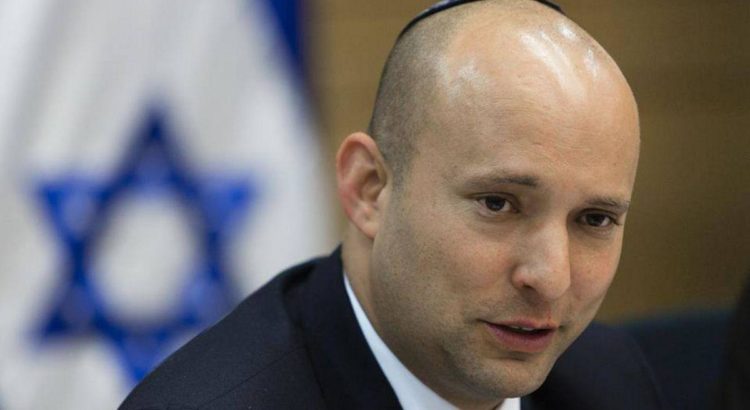
El gobierno de Israel se mueve para amordazar a los profesores que respaldan al BDS
Israel / 15 de abril de 2018 / Autor: Redacción / Fuente: Monitor de Oriente
Un documento presentado por el gobierno israelí para la educación superior, encabezado por el ministro de Educación, Naftali Bennett, aceptado el domingo, determina “un código de ética (…) que impide que los académicos pidan un boicot a Israel”, informó Haaretz.
Según el documento, los principios requieren una “prohibición de la discriminación, positiva o negativa, de los estudiantes con base en sus opiniones políticas” y una “prohibición de discriminación, positiva o negativa, de un miembro de la facultad o candidato a entrar, basado en sus opiniones políticas”.
El cuarto principio prohíbe la “propaganda partidaria en el marco de la enseñanza” y el quinto prohibiría “presentar o publicar materiales con opiniones políticas o personales como si fueran opiniones de la institución”.
Las medidas, dice Haaretz, “se extenderán tanto a profesores como a administradores”.
Además, el comité también propuso que se prohibiera a los profesores “aprovecharse de la plataforma de enseñanza para exhortar sistemática e indebidamente una posición política que claramente se salga del material del curso”.
Este documento ha sido enviado a los directores de las instituciones académicas de Israel para que respondan, antes de que el tema sea “presentado ante todo el consejo”.
El Comité de Directores Universitarios ha llamado al documento “una colección de reglas dictadas por el gobierno sobre un conjunto de actividades académicas de la facultad académica en Israel”.
Fuente de la Noticia:
https://www.monitordeoriente.com/20180327-el-gobierno-de-israel-se-mueve-para-amordazar-a-los-profesores-que-respaldan-al-bds/
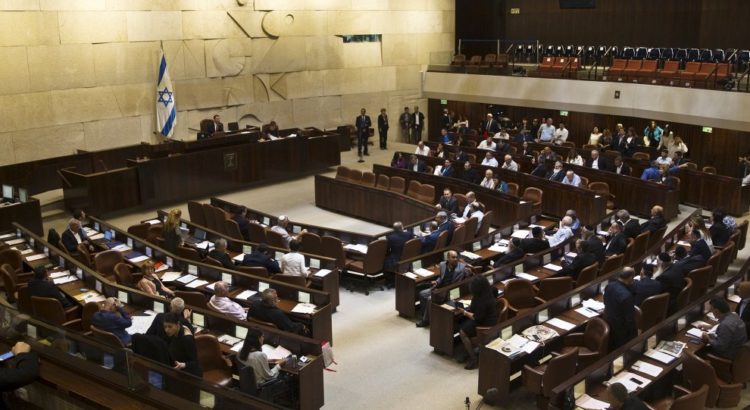
La Kneset incorpora a Israel las instituciones académicas de las colonias de Cisjordania
Israel / 18 de febrero de 2018 / Autor: Redacción / Fuente: Sputnik News
El parlamento israelí (Kneset) aprobó la incorporación a las leyes israelíes de las instituciones académicas que hay en las colonias judías de los territorios ocupados.
La votación de la segunda y tercera lectura de la ley se resolvió el 12 de febrero por la noche con 56 votos a favor y 35 en contra. A favor votaron la coalición gubernamental y el partido Yesh Atid (Hay un Futuro), que está en la oposición.
La ley, que fue defendida por el partido Hogar Judío de Naftalí Bennett, forma parte de una serie de leyes que fueron aprobadas recientemente, o que esperan ser aprobadas pronto, y que tienen por objetivo anexionar Cisjordania a Israel.
Una representante de Hogar Judío dijo durante la defensa de la ley que no se debe ignorar que la nueva legislación contiene elementos de «soberanía» de Israel sobre los asentamientos judíos.
Hasta ahora las instituciones académicas israelíes de los territorios ocupados se regían por el Instituto de Educación Superior de Judea y Samaria.
Fuente de la Noticia:
https://mundo.sputniknews.com/politica/201802131076232597-oriente-proximo-politica-tel-aviv-colonias-judias/
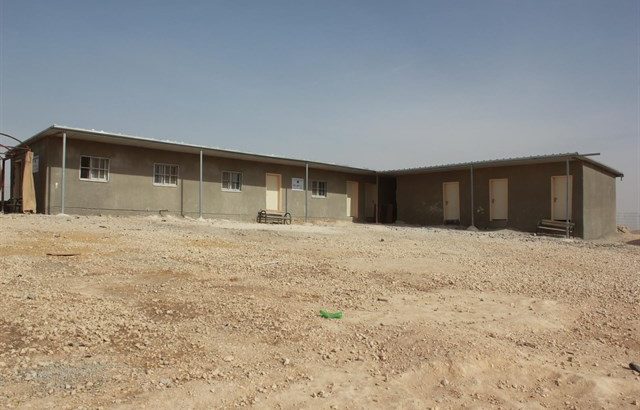
ONG alertan de que una escuela palestina financiada con fondos europeos será demolida por Israel
Palestina – Israel / 1 de febrero de 2018 / Autor: Redacción / Fuente: EuropaPress
El colegio de educación primaria, situado en la zona C de Cisjordania, atiende a la comunidad beduina a las afueras de Jerusalén. En este momento, Al Muntar acoge a 33 alumnos, aunque se habían hecho planes para ampliar su capacidad hasta los 70 estudiantes, según han destacado las organizaciones.
Este colegio es uno de las 61 escuelas en Cisjordania que están en riesgo de ser demolidas o que, directamente, han optado por suspender sus actividades.
Save the Children, Acción contra el Hambre y el Consejo Noruego para Refugiados (NRC) han denunciado en un comunicado este martes que la escuela de Al Muntar, construida en Cisjordania con fondos de donantes europeos, será demolida por las autoridades israelíes a partir del 1 de febrero.
«Si se demuele la escuela Al Muntar, muchos de los niños pueden verse obligados a abandonar su educación, con las otras escuelas a varios kilómetros de distancia y sólo accesibles a pie o en burro, más allá del asentamiento israelí», han manifestado las ONG.
«El Tribunal Superior de Justicia de Israel dictaminó que la escuela era un intento de ‘crear hechos sobre el terreno’, a pesar del servicio básico que aporta a la comunidad», han añadido Save the Children, Acción contra el Hambre y el NRC.
«Los tribunales israelíes están amenazando con demoler esta escuela porque crea ‘hechos sobre el terreno’. En realidad, estos hechos están siendo creados por los asentamientos ilegales, no por las escuelas palestinas, que son necesarias para garantizar el derecho fundamental de los niños palestinos a la educación», ha afirmado la directora nacional del NRC en Palestina, Kate O’Rourke.
«Los ataques a las escuelas de Cisjordania son uno de los muchos elementos que conforman el entorno restrictivo que empuja a los palestinos fuera de sus tierras para dar paso a la expansión de los asentamientos israelíes», ha señalado O’Rourke.
El director en el país de Acción contra el Hambre en los Territorios Palestinos, Gonzalo Codina, ha puesto el foco sobre cómo las escuelas palestinas están sobrecargadas y cómo las autoridades israelíes no emiten los permisos de construcción suficientes a comunidades como la de Al Muntar.
La directora de Save the Children en los Territorios Palestinos, Jennifer Moorehead, ha añadido que «el derecho fundamental de los niños a la educación está bajo una creciente amenaza».
Moorehead ha manifestado que «estos espacios seguros para que los niños aprendan (como Al Muntar) deben estar protegidos, no destruidos». Además ha hecho un llamamiento urgente a la comunidad internacional «para evitar la demolición y la incautación de la infraestructura escolar».
En el comunicado, las organizaciones han puesto el foco sobre cómo «la demolición de escuelas viola el Derecho Internacional Humanitario y el derecho básico de los niños a la educación y socavan directamente por la asistencia brindada por la comunidad internacional a la población palestina para garantizar que los niños puedan ir a la escuela».
GRANDES DIFICULTADES PARA IR A LA ESCUELA
Las tres ONG han aprovechado para destacar que la demolición de colegios no es la única dificultad a la que se tienen que enfrentar los niños palestinos que quieren ir a clase.
Tal y como las organizaciones recogen, los menores tienen que lidiar con «amenazas de violencia y hostigamiento por parte de colonos o soldados israelíes en el camino a la escuela, actividad militar en sus colegios o sus alrededores, militares o policías que arrestan y detienen a niños en sus aulas, pérdida de tiempo debido al cierre de una zona militar o de una zona de tiro, retrasos al cruzar los puntos de control, amenazas de destrucción y demolición de escuelas, así como el bloqueo de órdenes de paralización de obras y bloqueo de permisos de trabajo».
Según señalan las ONG, se habrían producido 256 violaciones de este tipo en 2016 que habrían afectado a 29.230 menores.
Fuente de la Noticia:
http://www.europapress.es/internacional/noticia-ong-alertan-escuela-palestina-financiada-fondos-europeos-sera-demolida-israel-20180130144658.html
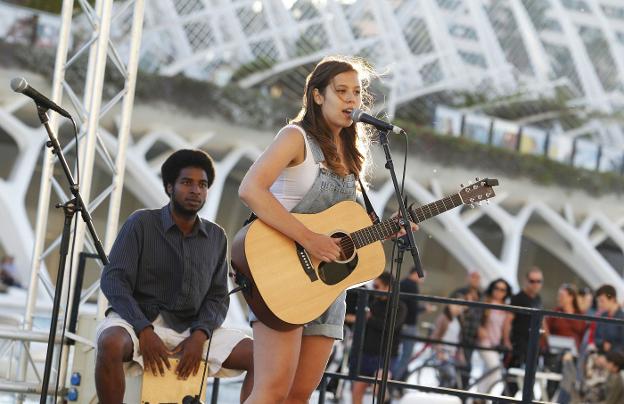
España: El futuro de la educación musical se debate en Berklee Valencia
España / 29 de octubre de 2017 / Autor: César Campoy / Fuente: Las Provincias
Escuelas de todo el mundo se dan cita en la capital del Turia para marcar las líneas docentes de la próxima década
«Por primera vez se va a celebrar en Valencia un encuentro de esta dimensión tan internacional. Escuelas asociadas a Berklee, presentes en todos los continentes, todas ellas punteras en temas de formación musical van a debatir sobre el futuro de la educación a nivel global», así de contundente se muestra María Martínez, directora de Berklee College Music en su campus de Valencia, el mismo que, desde hoy y hasta el 26 de octubre, acogerá una cumbre mundial en la que debatirán, sobre el futuro de la educación del sector, miembros, presidentes y representantes de medio centenar de instituciones, universidades y escuelas de artes escénicas de países como Hong Kong, India, Malasia, Australia, Japón, Corea, Países Bajos, Irlanda, Alemania, Francia, Reino Unido, Grecia, Israel, Ecuador, Colombia, Argentina, Estados Unidos o España.
Durante tres días, y en sesiones maratonianas, diversos profesionales compartirán conocimientos y experiencias, y asistirán a numerosas conferencias magistrales. Entre los nombres más destacados, el de Roger Brown, el director de Berklee a nivel mundial, o el de Manolo Díaz, figura histórica de la industria discográfica iberoamericana y, en la actualidad, peso pesado de los Grammy Latinos. «Berklee se encuentra, en la actualidad, en pleno proceso de materialización de la nueva visión para 2025, en la cual la importancia de la presencia global está en su visión de futuro. Nuestro objetivo es el de desarrollar un foro de debate para plantear novedades en el mundo de la educación. Berklee siempre ha sido líder de opinión, en tecnología musical… tenemos la escuela de formación online más importante del mundo, y no paramos de innovar. Queremos que el resultado de estas conversaciones sirvan, también, de guía o modelo de ejemplo para cualquier docente del mundo», añade Martínez.
Este Global Summit se convertirá, así, en el primer y único campus realizado fuera de los Estados Unidos, según la organización, y forma parte del plan de expansión en Europa de la institución, como confirma su directiva: «Valencia se ha posicionado como una escuela de referencia en el continente. Estamos muy activos en la relación con conservatorios y con la industria musical. Además, estamos convencidos de que este evento servirá para darle a la ciudad una mayor dimensión internacional». La cita se clausurará, el día 26, con un concierto abierto al público a cargo de alumnos del centro.
Fuente de la Noticia:
http://www.lasprovincias.es/culturas/futuro-educacion-musical-20171024001433-ntvo.html
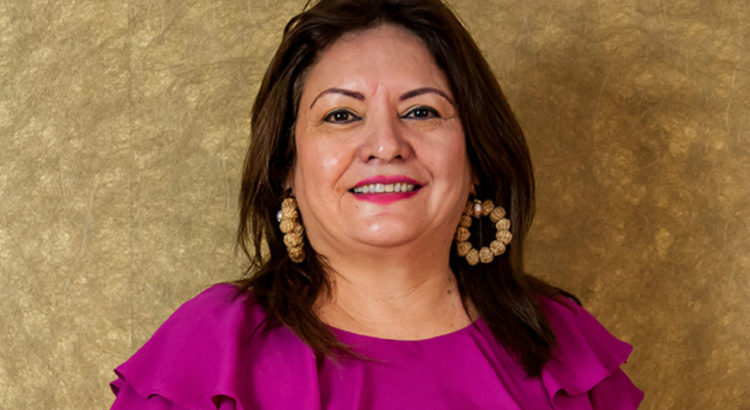





 Users Today : 48
Users Today : 48 Total Users : 35459514
Total Users : 35459514 Views Today : 63
Views Today : 63 Total views : 3417821
Total views : 3417821